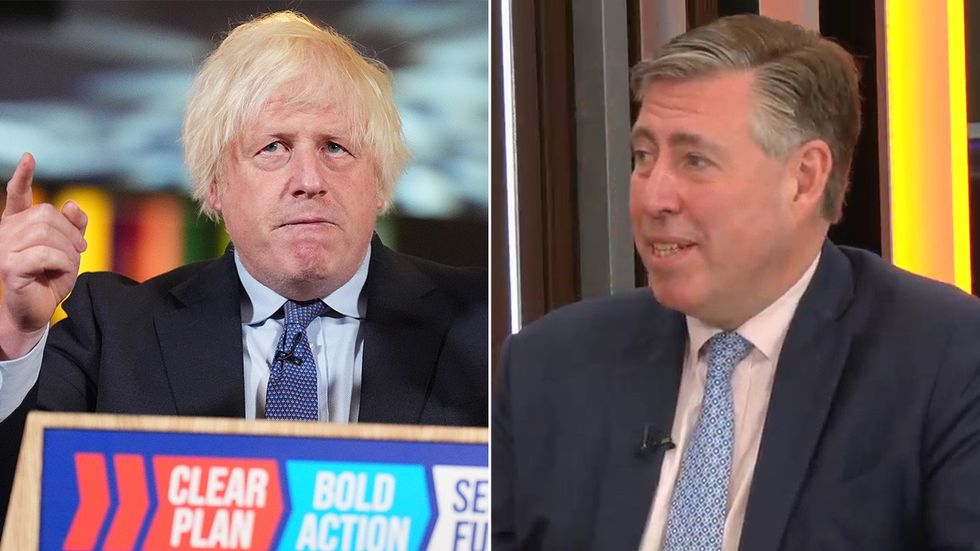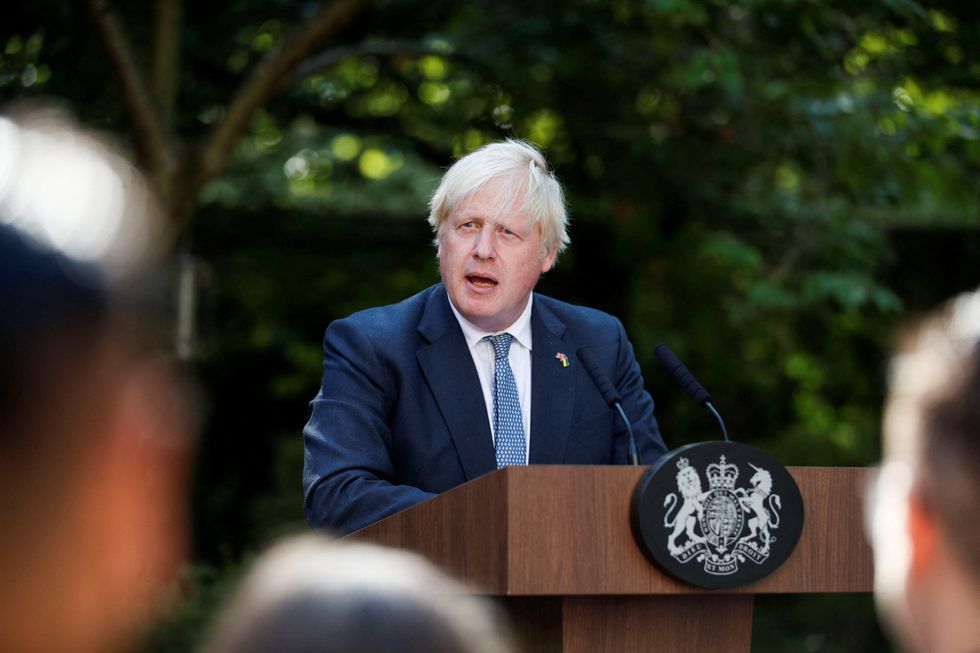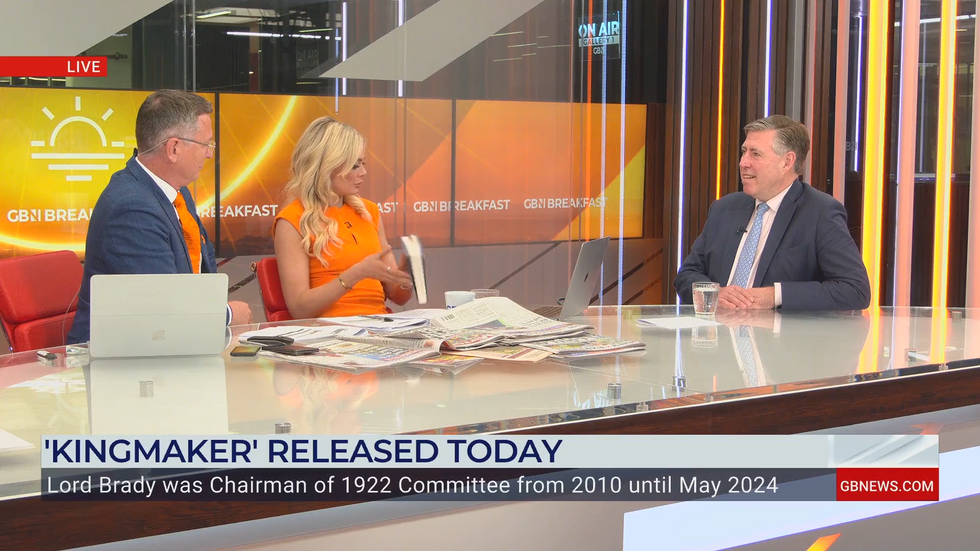Don't Miss
Most Read
Trending on GB News
Boris Johnson "created his own problems" as Prime Minister which resulted in his resignation from office, it has been claimed.
Following the release of his tell-all memoir, Kingmaker, former 1922 Committee Chairman Lord Graham Brady shed light on his relationship with the former Tory leader, and how his actions during the coronavirus pandemic ultimately led to his downfall.
Detailing the rise and fall of other past Conservative leaders including David Cameron, Theresa May and Rishi Sunak, Lord Brady told GB News of how the many scandals Johnson faced were caused by his own wrongdoing.
Noting how all of the previous leaders of Britain are "very different" from each other, Brady explained: "They're all very different people. I think David Cameron, obviously the first who was there, he carried it very lightly most of the time.

Lord Graham Brady said Boris Johnson 'created his own problems' as Prime Minister before being forced to step down
PA / GB News
"He seemed very relaxed and took it in his stride until suddenly he didn't. Then Theresa May, very proper, very dedicated to public service - she was determined to deliver the outcome of the referendum, but then called that 2017 general election, didn't have the majority to do what she needed to do, and the pressure that then built on her was immense.
"So you see some of the consequences of that, which is both a consequence in public policy terms, we couldn't do what we had to do, and the human consequence, both for her, for everybody in Parliament actually was the most awful, painful time."
Turning his analysis to Johnson, Brady highlighted how the Conservative leader's main problem was "getting caught up in his own covid restrictions", famously named Partygate.
Brady said: "And then Boris comes in, determined just to smash through and get everything done and he created his own problems.

Boris Johnson was 'determined not to go anywhere', Brady revealed
PA
"In my view, the covid restrictions were too complex and too restrictive, and he then ended up getting caught in his own covid restrictions."
LATEST DEVELOPMENTS:
Recalling certain accounts from the book, Brady was asked by host Stephen Dixon about a significant phone call the former Committee Chairman received from Boris Johnson, after he had decided to step down as Prime Minister.
Lord Brady revealed: "I’d just come from a meeting with Boris where I told him what I thought was going to happen, and he had been absolutely determined that he was going nowhere and he was going to fight on.
"And so at that point I was just thinking, I don't know how this is going to end, but it's going to be messy."
Brady continued: "It was early the next morning that I had a phone call from Boris's office, just saying, the Prime Minister wants to talk with you on the phone. He'll call you in about an hour's time.

Lord Brady said his book is for 'students of politics' and to 'put certain things on record'
GB News
"I think it was then 8.30am that Boris phoned me and said, the conversation we had last night, I've changed my mind. I think the logic and the pressure of events was such and at that point he was struggling to get people to serve as ministers in his government.
"I think what people tend to underestimate is or fail to recognise all the time, is they are people and as human beings they're all flawed. They all have their own frailties."
When asked by Stephen why he decided to write the book, Brady admitted that he believes certain things "should be put on record", for the benefit of "history".
Brady told GB News: "I do tell some things which I think should be on the record, some things which are important, I think for history, and for students of politics.
"I think I try to debunk the idea that a lot of people in the media and quite a lot of people in the public developed, that my colleagues were trigger happy and they were always writing and asking for confidence votes - actually, they were very cautious and very responsible about it."








